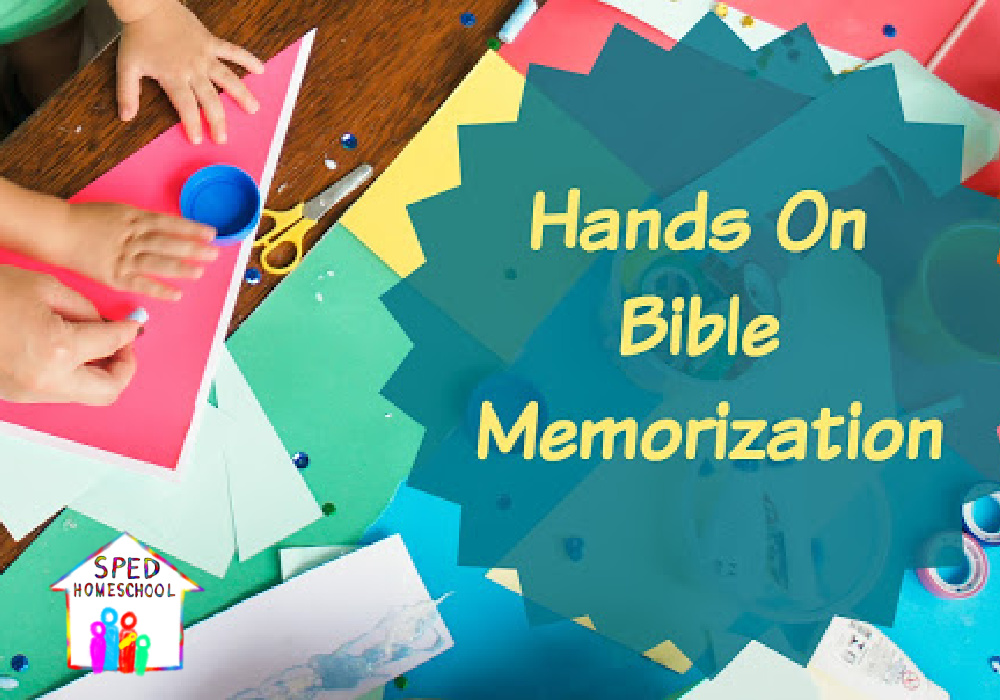
Did you benefit from this article?
Would you consider a small donation to support the ongoing work of SPED Homeschool?
Click Here to Donate Today

Month: September 2017



It’ that time of year again, when everything is pumpkin flavored, field trips consist of visits to apple orchards, corn mazes, and pumpkin patches…and school starts to develop a routine.
I am all for routine, and so are most of our special education homeschooled kids, but sometimes it’s nice to add a touch of the season to our school lessons. So, if you’re feeling the need to add some seasonal flair to your special education homeschooling, here are 20 ways to add some fall spice to your schedule.
20 Fall Special Education Homeschooling Activity Links
For more fall SPED homeschooling ideas, make sure to check out our SPED Homeschool Fall Pinterest Board. There are new pins being added to the SPED Homeschool Pinterest boards every day, so subscribe to all of them so you don’t miss a thing.

If you are married and parenting a special-needs child or children, you are likely well-acquainted with the marital prognosis bandied about in our circles. It’s not a kind one. Widely shared statistics tell us that the divorce rate for our families lies around eighty percent. Others decry that statistic, but no matter the number, special-needs parenting places great demands on a marriage.
However, there are wonderful things that special-needs parenting creates or deepens in an enduring marriage. I’m writing a series of articles on those things; highlighting strengths developed in the fires of parenting special-needs children and strategies for developing them. I’ll start by sharing a little of our experience and how our marriage has benefited through it.
Our Story
My husband and I married in 1995 and did not have children until 2002. These seven years provided ample time to know one another and plan for children. We both met career, financial and personal goals before conceiving and felt secure that we had laid the best foundation we could to bring children into the family.
Our marriage was well-prepared to support children, but the arrival of our first child threatened everything we had built. Our son was born without the ability to nurse or take a bottle. We spent many long weeks pumping breast milk around the clock, trying to rouse our son to eat, and then spooning the liquid gold into his mouth. Exhaustion and fear over his condition accelerated a fall into postpartum depression.
We beat back the darkness, our son improved. Then we welcomed our second son into the family two years later. Before long, I was battling fears that whatever was affecting my oldest son had also affected his younger brother. By the time our oldest was three-and-a-half, we had identified both our sons were impacted by autism spectrum disorders, among other challenges. Our family was struggling to get through each day and our marriage took some tough blows for the next five years as we came to terms with handling a reality that differed from our expectations and preparations.
As our sons are entering high school, we enjoy an enduring marriage and a host of benefits from weathering the early years of parenting. Here are some marital benefits of special-needs parenting we have discovered along the way.

Still smiling after all these years and lots of tears….
What We’ve Gained
Enhanced Sensitivity
Some of us are naturally attuned to the needs of others, while some people struggle to appreciate them. I won’t disclose who is who in our marriage, but we have both grown exponentially in this area. Parenting our children has required us to closely attend to the children’s needs and one another. Thriving together requires recognizing everyone’s needs and balancing them in ways not demanded by typical parenting.
Deep, Honest Communication
When our marriage was suffering, we learned to communicate more deeply, honestly, and quickly when problems arose. Beating around the bush is a luxury confined to times of normalcy and peace. Fighting for our family required honest, forthcoming communication. I developed courage to address unmet needs in myself and children and to express them well to my husband. This was a process, but we hashed out better communication skills and committed to using them.
Deeper Commitment
Our vows were expressed with a commitment to part only in death, yet I questioned them in our darkest times. As my husband struggled with our new realities, my understanding, compassion and forgiveness were lacking. I entertained ideas that it might be easier on my own and had to quickly combat them with truth. I chose to love him better and renewed my commitment to our marriage. He stuck with me through disillusionment, anger and depression. We look back on those times and marvel at how we’ve grown spiritually, emotionally and relationally.
Laughing More
There are many challenging and painful things we encounter, but almost all of them can be viewed with a sense of humor if we are willing to laugh at ourselves and our circumstances. Shared laughter helps us cope with stress and builds unity. Some of our biggest laughs have come from mining humor out of acutely stressful or painful situations. Given the number of those situations inherent to parenting special-needs children, we laugh a lot more.
Coordination and Delegation Skills
Nothing can mold a couple into a tip-top team like managing the schedules, needs and appointments of our families. Balancing work, therapy, school and life demands requires skillful coordination, a team mentality and the ability to delegate. I’m thankful for how we’ve honed these skills over our years of parenting; we can flat get things done.
New Ministry
In the early years of parenting, we had to divide and conquer to meet the challenges that kept coming. One of the few things we could do together in those years was encourage other struggling parents. It helped us stay connected to one another.
We have met many wonderful people through our family’s challenges: doctors, therapists, other parents and those with special needs themselves. These relationships give us a richer life and opportunities to share hope, comfort and encouragement even as we receive them.
These are a handful of the benefits we have enjoyed. I hope they encourage you to recognize your own. I’d love for you to share yours with me! My next article will address strategies for cultivating these benefits.
This article has been copied with permission from Ambling Grace.


We start every school morning with our Bible Lesson. We have chosen to use My Father’s World because I found it easy for me to modify for my daughter. My children are learning to memorize Bible scriptures and place them in their hearts. I found that my daughter loves to hear scriptures as well as my other two children but needs something tactile to remember them.
Here are ways I use this website to help my daughter learn, with demonstrations on how you can modify these ideas to meet your child’s needs.
Method 1 – Visuals for Words
Introduce the Bible verse with a coloring sheet that depicts a visual that matches what the verse’s content. I chose Matthew 4:19 and added dots under the words to provide one-to-one correspondence of the words she reads.
Method 2 – Act It Out
Act it out as you read by using hand motions, such as pretending to catch fish.
Method 3 – Matching
Take the verse, type it up and cut it so they can match words to words or phrases. You can have your child match and glue the words on top of the given word. You can also have them match it right underneath. This can also address occupational therapy skills if your child is working on cutting and gluing.
Method 4 – Abbreviated Writing
Have your child write the verse. If they cannot write, you can have them type it or match up the words like my daughter does. You can shorten as needed or pick the most important phrase you have been working on. My other two children copy this verse down on the lines or in their Bible notebook. I write on one copy and make a copy to reduce work for me.
Something simple and fun can make memorizing Bible verses both engaging and functional at the same time. It is amazing how much these steps have helped my daughter memorize scripture.


Attempt after attempt improved my results. I started putting my recipes onto a cheese making section ofmy personal blog. Soon I had hundreds of people visiting my site. The pinnacle accomplishment, which I would have never set my sights on when only my chickens were my only customers, was becoming a featured cheese blogger for the New England Cheese Making Companyfor my Brie recipe.


Planning for the future often looks different and should start early for our children with learning differences and special needs. Below I’ll be covering a variety of topics that I hope you will find helpful when planning your child’s future. We will address foundational skills and how to access resources at an early age.
Through almost ten years of working in public school special education, and being a mom of seventeen-year-old twin boys with Level 3 Autism, I’ve learned that Activities of Daily Living (ADL) are vital in accessing the community when our children are no longer school age. ADLs are the skills our children will need to function as independently as possible, no matter what the future holds for them.
The best advice I’ve ever heard from someone working with adults on the Spectrum is that “functional language and safely being able to use a public restroom are the two most important skills we can give a special needs child/adult. Academics are important but are less so if they don’t have these two basics mastered.”
What questions should I be asking in planning for my child’s future?
These are just a few of the many decisions that need to be made for our children. Some at an early age, others once they reach high school age. I am currently in the process of making some of the more time-sensitive and critical adult transition decisions for my boys. I hope my experiences over the last twelve years will be helpful to you and your family when making some of these difficult but necessary decisions.

Our home is filled with boundless energy, lots of love and enough challenges to fill two lifetimes. God has wisely chosen to pack it all into my life and teach me how to walk with Him through it. And, because we homeschool, many of those lessons have centered around homeschooling special needs children.
#1 – There are many days that are as hard as I feared they would be, but they are outweighed by the wonderful life we share.
It will always be a difficult choice to homeschool. On days when I wonder if going to school would be better for them or me, I remember all we would lose by not learning and growing together. So far, that has been more than enough to keep us on this path.
#2 – I don’t have to defend my decision to homeschool.
Doing it well, wholeheartedly and openly, eventually silences the critics. Responding with information and kindness to those with questions, fosters a positive response in most people. When that doesn’t work, nothing else will, so I can stop trying.
#3 – Most parents, doctors, and therapists in these trenches are amazing, inspirational people.
They will help you, listen to you, and inspire you with all that they do each day. The admission price to this club is steep, but the rewards are inestimable.
#4 – Nurturing my marriage first is critical to successful homeschooling.
The more unified, mutually supportive and loving that our marriage is, the more our children learn, feel secure and thrive. Time devoted to our marriage is not a detriment to homeschooling, but an investment in it.
#5 – Rest and recreation deserve subject credit.
Are my children battling me over schoolwork? Would I rather scrub the bathroom with a toothbrush than face one more day of school? This is a sign that we need rest and recreation. Many discipline problems and poor attitudes have been vanquished by a nap, field trip day or a day off from school. It is amazing how much is accomplished by taking a quick break, rather than pushing through our misery.
#6 – I won’t have it all together for very long.
This is a bitter pill for a recovering perfectionist like me. Loving my family, putting relationship with Christ and others first, will always mean interruptions and distractions to my schedule. Maintaining a reasonable order to our life is better than appeasing my inner tyrant’s demands.
#7 – It’s vital to show love and accept my children even if they are never able to do _______.
This blank can be filled with whatever we are struggling with at the time. My children need me to be content and grateful for what they are able to do (or unable to do!) so they can learn to do the same. Their struggles and limitations will always tempt them to despair or give up. I add to their burden when I am discontent or frustrated. Seeking God’s design and purpose for my children, Allows me to help them grow and discover those things with joy.
#8 – Ask for help and humbly accept it.
Homeschooling moms can believe they should handle everything alone. This is a fast road to burnout. Utilize all available help to maintain a peaceful home, heart, and family. While others might praise us for being able to “do it all,” that praise is a fleeting satisfaction. A richer life is interconnected; giving and receiving, and helps us make it for the long haul.
#9 – I will always wonder if I am doing “enough.”
This might be the nemesis of every homeschooling parent. Having children with additional challenges and needs often compounds this worry. Rather than trying to answer this unknowable question, I have learned to accept that I am not ever doing “enough.” Moreover, it is not my job to be enough for my children. That job belongs to God alone. I am just one of His provisions in their lives. Others can and will shape my children. Opportunities will arise for them that I did not orchestrate. Relationships will be formed without my intervention. I can do my best for them and trust all else to their loving Father.
#10 – God is enough.
This is true when nothing is going right, I fail, my children aren’t progressing like they “should” and I am scared about the future. No matter our circumstances, He carries us and enables us to do what He calls us to do. He has taught me this in many ways, but I experience it more deeply as we homeschool. This realization has enriched my life and relationships more than any other; it’s been this mom’s greatest lesson.
This article was previously published in abbreviated form for the
Special Needs blog in January 2016


Have you ever wondered just why spaghetti sauce tastes best when simmered for hours over low heat verses just mixing all the ingredients up as fast as you can? Or why a roast is more tender and juicy when it’s slow cooked on a lower temperature than cooked on high for a shorter time? It is being patient for everything to break down and come together in its own time.
Don’t rush, instead savor the smell of the beautiful, unique recipe coming together in your homeschool today. You will be glad you did.

The “I” Factors of Childhood Depression
The “G” Factors of Childhood Depression
The “H” Factors of Childhood Depression
The “T” Factors of Childhood Depression
The “S” Factors of Childhood Depression

During times of crisis, it’s okay to take a break from homeschooling. In fact, when situations become stressful or time consuming, a break from core curriculum is best, especially if you know you won’t be able to teach adequately.
School just started, but I’ve already talked to moms in crisis mode. Right now, many families in Houston are displaced after Hurricane Harvey. Due to this area-wide crisis, a homeschooling crisis conversation today started with these questions: “How can I homeschool my daughter when I’m trying to find us a place to live and clothes and food? What can I do this week while I work on the details? We are in crisis mode!”
5 Things Kids Always Need
Whether your crisis involves your children, is short-term, or long-term, due to sickness, death or catastrophe, some things don’t change. Therefore, before you take a break, here are some key tips to keep in mind.
Ultimately, we don’t want tough situations to arise, but life is hard. Death happens, hurricanes flood our land, and sickness sneaks up on us. I know this from experience. Last year my family took a homeschool break at my father-in-law’s home going. What I learned through that experience was, opening room in your plans for breaks, helps with the stress of homeschooling during life’s unexpected crises.
